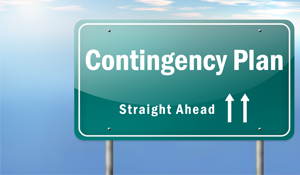In Part I of our series on Life Insurance, “To Insure or Not to Insure,” we discussed the possible...
To Insure or Not to Insure – Part I: What You May Not Know
The term “life insurance” usually evokes strong feelings from business owners.
It might make you think, “Security and contingency plan.” Or maybe you see it more as a “Bad investment and waste of money.”
By the nature of what it is -- protection against financial loss that would result from the death of an insured -- life insurance can also be a reminder of our own mortality, which is something that many people prefer not to think about. We find in speaking with business owners that there is a lot of misunderstanding in the marketplace related to life insurance, and some owners simply may not know enough about how life insurance works.
The truth is that life insurance can help protect wealth and help owners achieve financial goals. In Part I of this two-part article, we provide some information on some of the uses for life insurance and the types of coverage that are available.
Uses for Life Insurance
Owners, their families, and their businesses should be protected from unplanned events, such as the untimely death or disability of the owner. Recognizing and preparing for these risks provides a level of certainty and financial security against potentially devastating consequences. Life insurance can play a large role here. It can be used to:
- Replace income to support the family lifestyle.
- Pay off debts such as mortgages, credits cards, tuition, medical costs, and long-term care.
- Fund retirement income needs.
- Provide money to heirs to pay estate taxes, so businesses or other assets don’t have to be sold.
- Ensure business continuity by providing money to keep businesses running smoothly in the absence of owners.
- Enable the company, employees, or family members to acquire a deceased owner’s shares and provide liquidity to his/her heirs.
Having life insurance as a financial “backstop” gives owners and their families time to figure out the best way forward for themselves and their businesses.
Types of Life Insurance
There are two basic kinds of life insurance policies: permanent and term.
- Permanent Life Insurance – This type of insurance remains in force until the insured cancels or sells the policy or passes away. These types of policies not only provide death benefit but may offer an investment component, allowing you to build Cash Surrender Value as you pay your premiums.
In addition, these policies are eligible to earn annual dividends, which are non-taxable earnings that may increase cash surrender value and/or death benefits over time. Certain policies may also include disability, long-term care, and terminal illness riders that enable owners to tap into future death benefit early – when the money may be needed most. Premiums for these policies may be fixed for life or may vary over time. The younger you are when you purchase the policy, the less expensive it will be. - Term Life Insurance – This type of insurance is temporary, lasting usually for 10 to 20 years, and it’s much less expensive than permanent coverage. Once the initial term ends, the premiums increase significantly. In some cases, these policies may be convertible to permanent insurance, but because you will be older at that time, generally the permanent coverage will be more expensive. Some policies allow owners to convert without obtaining a new health screening so they may lock in lower premiums regardless of their health status at the time of the conversion. Term policies do not provide any Cash Surrender Value.
Important to note for both types of insurance: All owners must pass a health screening and will receive a rating that impacts the cost of premiums.
Deciding on the Type that is Right for You
Deciding which kind of policy is best for you depends on your goals and needs, in addition to the needs of your family and business. You may actually determine that both types of policies are appropriate in some cases. While securing the necessary insurance will enable your business and your family to avoid the financial disaster that can result from unexpected life events, life insurance should also be fully integrated into your Business Ownership Transition Plan and estate plan.
In Part II of this article, we discuss some client case studies and examine how insurance is being used by owners to protect their hard-earned wealth, including their privately held businesses.



